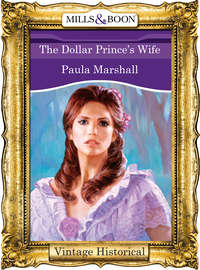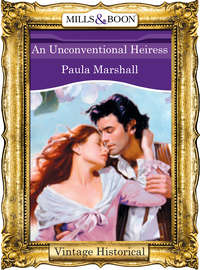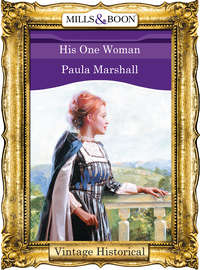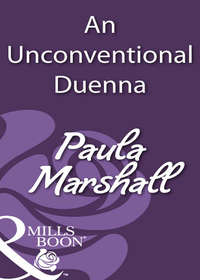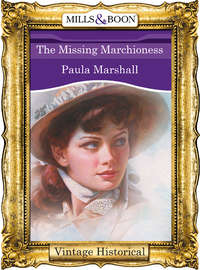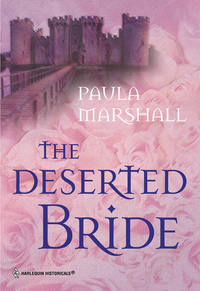
Полная версия
An Innocent Masquerade
‘I used to be a doctor,’ he said brusquely when Bart thanked him. ‘It might be helpful in the diggings.’
Back at the farm neither Kirstie nor Sam had thought that when they finally left Melbourne for Ballarat they would be part of a vast exodus of folk walking and riding to the gold fields. With two bullock-drawn drays and the horse and wagon they were among the more affluent of the travellers—although, as Kirstie commented, that wasn’t saying much. They were mostly big, heavily whiskered men, many with pistols thrust into their belts. Some were already drunk, early in the morning though it was.
Pat, indeed, always lively and curious, gave a loud squeal when they passed a scarecrow of a man driving a rackety cart pulled by a spavined horse.
‘Look, Big Sister, look, it’s the two tramps from outside The Criterion. Fancy seeing them here!’
So they were. The little red-headed one was sitting up and looking around him while the big, dark one was lying on his back, eyes closed, a bottle in his hand, dead to the world already.
Kirstie sniffed her disgust at them. ‘Hush, Pat. They might hear you.’
‘Oh, Corny and The Wreck won’t mind. They’re used to people noticing them. Corny says they get more money that way. He’s the little one.’
‘There’ll be more money for them in the diggings, perhaps,’ commented Pa. ‘And you’re not to talk to them, Pat.’
‘Oh, I don’t talk to them. Besides, only Corny talks. The Wreck never says anything. Just looks.’
‘And smells!’ sniffed Kirstie.
‘One thing, though,’ said Geordie later, ‘at least they weren’t trying to cadge a free ride.’
He, Bart and Pa had been compelled to beat off with their whips great hairy ruffians trying to climb in beside them. One bold fellow, stinking of grog, jumped up and thrust his whiskered face at Pa, demanding that he sell him a ride. Pa threw him off, and left him behind in the dirt, hurling curses after them.
Some people were pushing wheelbarrows, full of their possessions, and their little children, some not as old as Herbie, even, were walking behind them. Public houses, inns and sly grog shops, so called because they were not legally licensed, lined the road. One lean-to shed had a sign, ‘Last sly grog shop before the diggings,’ which was a lie since a few miles further along was another with an even bigger sign saying, ‘This really is the last sly grog shop before the diggings.’
Geordie, who had a dry wit which kept them entertained, suggested that ten miles after the last one they came to they ought to set up their own grog shop and make a fortune—except that someone else would be sure to build another a few hundred yards further on! He didn’t drink, though, refusing a swig from the rotgut passed round after they had eaten their grub, and he never asked to stop at a grog shop.
He soon grasped that Sam Moore and Big Sister were the driving forces of the expedition. Sam was quiet and determined and made the decisions. Big Sister did all the donkey work. She rounded up the children, kept watch over them. scolded them, and bandaged their cut knees, in between doing the many chores which came her way. It was Big Sister who washed the clothes, lit the fire, cooked the food, banged a spoon on a tin plate and shouted ‘Grub’s up’, a sound which began on the journey and which was to echo round the diggings in the months to come.
And on the road she entertained them by singing, in her small true voice, the songs which Ma had taught her to sing—their last link with long-gone England.
Kirstie knew that the diggings were going to be a man’s heaven and a woman’s hell as soon as they reached the ruined landscape which was Ballarat. The diggings were called the diggings because that was exactly what they were. There were hundreds of great deep holes, many filled with water, with soil flung up around them, and left there in heaps. Besides that, there were more people than they had ever seen before, even in Melbourne, crammed though it had been. They swarmed round the muddy holes and the canvas buildings like wasps around a honey pot.
Whatever there had once been of rural beauty before the gold rush began had long since disappeared. The settlement pullulated with life and noise, particularly noise, something which none of the party had expected, and to which none of them was accustomed—but which, like everyone else, they came to accept and ignore.
Symbolically, perhaps, the first people Kirstie saw as soon as they arrived were The Wreck and Corny lying in the muddy road where their driver had turned them out when he had found that they had little to pay him with. Somehow they had managed to beg enough to share a bottle and a pie between them, and were busy sleeping their impromptu banquet off.
Worst of all, Kirstie could plainly see that living in the diggings was going to be one long, improvised and dreadful picnic. Any hope that she might resume the orderly life she had been used to on the farm disappeared in the face of the cheerfully impromptu nature of gold-field society.
The men would love it, she thought bitterly, trust them. No need to be good-mannered, to sit down decently to eat. Male entertainment of every kind was laid on in abundance, for there was no getting away from the alleys where the grog shops, brothels, gaming halls, and bars flaunted their wares to the world.
There were even boxing booths, she discovered, and shortly after they arrived a small improvised theatre called The Palace started up—as though any palace could be constructed out of tent poles and canvas! There were few women in the diggings and Kirstie soon discovered that little was provided for them in this masculine paradise.
But exploring Ballarat was for the future. For the present it was time to settle in, to discover how to make one’s claim and work it, and how to sell the gold—if they ever found any, that was.
Unkempt men, quite unlike the husband whom Pa had promised her, their soil-encrusted clothes reeking of sweat, came over to speak to the new chums, to advise them where the stores were, who was honest and who wasn’t. They stared jealously at the drays and bullocks, at Geordie’s horse and wagon, and the equipment which the men began to unload while Geordie helped Kirstie to light a fire outside, and set up a tripod and cooking pot over it. Meals would have to be eaten in the open.
‘Really need all this, do you?’ asked one ginger-haired digger. He was pointing at the trunks and blankets Sam was lifting out. ‘Give you good money for this,’ he offered, putting a hand on a storm lamp.
Sam pushed the eager hand away. ‘Nothing to sell, mate. We need all we’ve brought for ourselves.’
‘Seems a lot to me,’ said Ginger, whose real name was George Tate. ‘If you’ve ever a mind to sell anything, I’m in the market for what you don’t want.’
The firing of a gun in the middle of removing Ginger’s sticky fingers from Kirstie’s cooking pots surprised them all. Kirstie dropped the frying pan she was holding and the younger children began to cry. Emmie Jackson, already depressed by their primitive living conditions, howled with them.
‘That’s nowt,’ said Ginger phlegmatically. ‘All digging has to stop when the gun goes off. It’s time to light the fire, eat your grub, and…’ he paused a minute to wink at the men ‘…that’s when the evening’s fun really begins.’
‘For the men, I suppose,’ returned Kirstie smartly, for only men, she thought, would want to live in this dreadful way—and enjoy it, too. No woman of sense would ever want to settle down in such dirt, confusion and mess, even to find gold.
Just to show that she meant business, she struck Ginger’s hand smartly with her iron ladle when it strayed again among the pots lying on the ground. ‘Give you good money for it, gal,’ he said cheerfully—it seemed to be his favourite phrase.
‘Don’t want money for it, good or bad,’ she snapped back. ‘We shall need all we’ve got in this Godforsaken hole.’
Grinning at her, he wandered off—only to be succeeded by another set of diggers who, like squirrels, Geordie said, descended to try to wrench their stores from them. He made it his business to protect Kirstie so that she could prepare their supper. The children had long since run off to begin a disorganised game of tag in and out of the filthy maze of holes and the alleys which stood in for streets. It didn’t improve her temper to see The Wreck shamble by, still clutching his bottle, Corny trotting along behind him.
Somehow Pa managed to round everyone up at last, after Big Sister had shouted, ‘Grub’s up,’ and they ate their meal with all the relish of the genuinely hungry.
‘Work tomorrow,’ he said, after he had finished eating. ‘Fancy a stroll, eh, Bart, Geordie?’ Kirstie, gathering up dirty pots, an apathetic Emmie Jackson helping her, watched them go.
Pitched among the tents and the huts of the diggers were all the masculine delights which Kirstie had disapprovingly noted, and the three men found themselves part of the seething life which roared and reeled around them. They stopped at a sly grog shop, drank and moved on. The lure of a dance-hall was rejected. Fat Lil’s Place, with Fat Lil outside in satin and feathers—the girls were all inside—was reserved for another night. Money best spent elsewhere at the minute, thought Sam regretfully, but Hyde’s Place, as the Golden Ace gambling den was known, beckoned them in, not to play, but to watch.
Further down the alley was a music hall where the trio enjoyed themselves after moving on from Hyde’s. After that they reeled home singing, waking up Big Sister when they stumbled around before falling into their improvised bedding.
Sam and Bart had already agreed that life was never like this on the farm!
The diggers in Melbourne who had told them that two of them were not enough to make a successful syndicate had not been deceiving them. Even adding Geordie was not enough, so the Moore party, as Geordie had nicknamed them, decided after a couple of weeks’ fruitless work that they really needed a new chum—preferably one big and strong. Sam suggested that they try to hire someone—safer than trying to find a partner since they could control him.
‘Well, now,’ Bart said, ‘that’s a good idea, but who is going to hire themselves out when they can stake their own claim, eh?’
‘You can’t mean a layabout, Pa,’ said Kirstie disapprovingly. ‘He wouldn’t work, not after the first pay day.’
‘Never know ’til you try,’ said Sam mildly. But even he quailed at the sight of some of the rogues and ruffians who worked until they earned a little money for drink and then lay about the alleys. Kirstie was probably right.
‘What about The Wreck?’ asked Geordie, while drinking tea one breakfast. ‘God knows he’s big enough.’
‘The Wreck?’ said Sam dubiously. ‘You can’t seriously mean The Wreck, Geordie.’
‘Yes, I mean the big fellow Corny Van Damm brought here. Corny was the brains of the pair of them. I’ve been watching him. Ever since the police frightened Corny away he’s been a lost soul. In and out of the nick, every penny thrown to him going on drink. But…’
Geordie stopped. How could he tell them that something about The Wreck roused his pity and his interest? The occasional worried and questioning look in his eye, perhaps. Whatever it was, Geordie had an impulse to save him.
‘The Wreck!’ exclaimed Bart derisively. ‘What use would he be? He’s big enough, I grant you. But…’
‘I know a few tricks to control drinking,’ said Geordie. ‘I could try them on The Wreck. Nothing would be lost if I failed. We could throw him out again.’ He shrugged. It would be interesting to test whether he’d lost his touch.
‘Geordie’s right,’ said Sam. ‘We could take him in. Sober him up. Pay him by the week. Get rid of him if he won’t give up the drink.’
Bart rose. ‘Last time I saw him he was lying outside Hyde’s Place. Yesterday afternoon, that was. There’s a patch of shade there he seems to like.’
‘He was in a bad way,’ said Sam. ‘Likely the police have picked him up. I’ll go over to the nick. They’d be glad to get rid of him to us.’
Kirstie put her oar in. ‘I think you’re all mad,’ she said tartly. ‘Talking about taking on The Wreck. Only fit to trip over, is The Wreck.’
‘Now, Big Sister don’t be hard,’ said Geordie gently. ‘A bit of pity wouldn’t come amiss.’
‘Bit of pity!’ scoffed Kirstie. ‘I know who’ll end up looking after him, cooking for him, and washing his clothes for him—and it won’t be you lot.’
‘Don’t think The Wreck’s much bothered about having his clothes washed, Big Sister,’ was Bart’s response to this.
‘Ugh,’ she snorted, ‘and I object to that, too.’ But nothing she said would move them, as she well knew. They were entranced by the prospect of a new, large and strong chum, even if he were at the moment a dead-drunk liability. They all trusted to Geordie’s magic powers to restore him to rude health and strength.
That afternoon Sam harnessed the one remaining dray—they had sold the other to raise money for more equipment—and took Kirstie shopping. While they were out they would look for The Wreck.
‘Taken off to the nick, half an hour ago,’ they were told by one of Hyde’s strong-arm men, so once shopping was over they set off for it.
In the compound at the front of the nick an officer was glumly watching The Wreck, who was reclining happily against its front wall: he was too disgustingly filthy to be put inside, the officer told them.
Sam knew the officer. He made a point, unlike some, of always being well in with the law.
‘In trouble again, is he, Mac?’
Mac scratched his head. ‘God knows what we are going to do with him, Sam,’ he said. ‘Locking him up is no answer. He just goes straight out and…’ He shook his head despairingly.
‘What if I took him off your hands, Mac? Geordie reckons he can dry him out, and then set him to work.’
‘That’ll be the day,’ said Mac drily. ‘Miracle worker is he, Geordie?’
‘Bit of,’ said Sam. ‘Done some good things for us, has Geordie.’
The officer looked at The Wreck, who smiled happily at them all.
‘Can’t lose,’ he said, much as Geordie had done earlier. ‘You’ll be doing us a favour, Sam, by taking him off our hands for a little, even if you don’t cure him. I doubt very much whether you’ll be able to sober him up.’
‘Depends on whether he’s a hardened drunk,’ said Sam, inspecting the sodden figure who now gave him the smile previously offered to Mac.
The Wreck said with great dignity, opening one red eye, ‘I can’t be drunk, because I never drink.’ He closed the eye again and began to snore. The officer groaned and helped Sam to haul him to his feet. Kirstie, sitting in the dray, was stiff with disapproval.
‘You can’t want him, Pa,’ she called to her father. ‘What use will he be?’
‘He’s a big fellow,’ said her father. ‘We’ll dry him out and put him to work. We need him, girl.’
‘I know that we need someone—but him? Can’t you find anyone more suitable?’
‘No one wants to work for anyone else now, girl. We’re lucky to get him.’
So saying, Sam helped Mac to walk The Wreck to the dray, his feet dragging behind him. Between them they managed to hoist him into it. He was so dirty that Kirstie drew her skirts away from him, making disgusted noises which seemed to wake him up a little.
He opened his bloodshot eyes and stared at her.
‘Where am I?’ he asked.
‘Where I don’t want you to be,’ she flung at him. When he tried to sit up she pushed him down again. ‘Lie still. I don’t want you near me. He’s disgusting, Pa. I think that this is a big mistake.’
‘Think what you want, my girl,’ said her father equably. ‘He’s coming with us, and if he proves useless we’ll throw him out.’
‘I’m not disgusting,’ said The Wreck reproachfully. ‘Fred’s tired, that’s all. Fred needs to sleep.’
‘Then sleep,’ she threw at him. ‘Your breath is as nasty as your person, and that’s a feat in itself.’
‘Unkind,’ moaned The Wreck. ‘Women should be gentle.’
‘Gentle!’ Kirstie’s voice would have cut steel. ‘And men should be decent. When you’re decent I’ll be gentle, not before.’
He ignored this and, rolling over, said placidly, ‘I’ll sleep now,’ and immediately began to snore.
‘Fred?’ said Sam to Mac, now that their passenger was settled. ‘Is that all the name he has?’
‘Waring,’ said Mac, glad to see the back of Fred—for the time being at least. ‘Fred Waring, at least that’s who he says he is. Not too sure about that sometimes. Doesn’t even know where he is or what he’s doing. Except drink.’
Kirstie drew her skirts still further away from Fred and looked to the front, offering Mac her opinion of the police for letting him go so easily.
Sam picked up the reins and began the journey back to their claim.
Geordie Farquhar was up to his waist in the hole he had started to dig the previous evening, just before the gun went. He was using his pickaxe, not with the same strength and vigour as Bart and Sam—Bart cleared nearly twice as much mud as Geordie in any one session—but there was no doubting his determination.
He was already far more muscular than the soft man he had been before arriving at the diggings. When Sam returned with the dray he put down the pick and hauled himself out of the hole, wincing at his blistered hands. Even Sam and Bart had trouble with their hands and they were far more used to manual labour than he was. Geordie had been proud of his beautiful hands once—but once was long gone.
He walked over to the dray. Big Sister jumped out, stiff with distaste. She said scornfully to him in passing, ‘A fine creature we’ve brought you, Geordie Farquhar, lying there in his muck. The dray will need fumigating.’
‘Give over, do, Big Sister,’ said Sam in his mild way. ‘Come and help me with the new chum, Geordie.’
Bart put his head out of his hole. ‘Got him, did you, Sam?’
‘Aye, and blimey, he’s a big ’un. He’ll do when we’ve sobered him off.’
The three men looked at Fred lying in the bottom of the dray. He was now fully conscious and smiled up at them sweetly—but showed no signs of wanting to get up.
‘Big Sister was right,’ said Geordie. ‘We’re dirty. He’s disgusting.’
‘Get him down to the creek,’ said Bart practically. ‘Clean him up there. Sober him up a bit.’
‘Right,’ said Sam, ‘but he’ll need clean clothes. His are too dirty even for the diggings. He’ll need boots, too. His are useless, but where shall we find clothes or boots for him? We’re all too small for us to give him any of ours.’
‘Andy Watt,’ offered Geordie briskly.
‘That’s right,’ said Sam.
Andy Watt had been a big digger and a neighbour on their last claim. When the rains set in Andy had got drunk, fallen into one of the flooded holes, and drowned. Geordie had thoughtfully ‘saved’ Andy’s clothes and possessions and stored them away in his wagon.
‘Might come in useful some day,’ he had said. Geordie was a proper squirrel, they all agreed.
Geordie went to his wagon to collect the clothes, boots, soap and a towel. Sam and Bart hauled a protesting Fred out of the dray and walked him on his jelly legs down to the creek. Big Sister, still stiff with disapproval, watched them go.
Fred had a happy look on his face. He had no idea what his new friends were going to do to him when they reached the creek. If he had, he would not have looked so contented.
Geordie Farquhar, loaded with his possessions, gave Big Sister a wink when he passed her.
‘What use do you think he’ll be?’ she shouted at him.
‘Never know, Big Sister, until we try, do we?’
Bart and Sam had now thrust the protesting Fred into the creek. You could scarcely call it cleaning him. The water was milky, if not to say murky, from the many washings in it of the muck and quartz in which the gold was embedded. But it performed the dual purpose of cleaning the encrusted Fred of much of his grime and half-sobering him into the bargain. Every time he tried to climb out, Sam and Bart shoved him back in again.
The noise and the excitement not only brought all the children down to see the fun, but attracted a small crowd of men and women as well. Finally Sam and Bart let him climb on to the bank—and then threw him back in again for one last soak. The watching crowd cheered lustily when, shouting and spluttering, he hit the water, which rose in a vast fountain drenching the spectators!
This time when he surfaced Sam and Bart dragged him out and began stripping him of his sodden clothing now that it was fit to touch. The women in the crowd screeched and covered their eyes when they pulled his trousers from a loudly protesting Fred. Geordie threw him the scrubby towel not only for very decency but so that he might dry himself.
Fred was now shivering so violently from reaction that Geordie had to help him to dress. Fortunately Andy Watt’s clothing fitted him well enough. Even the boots seemed to be the right size. Once he was fully dressed and standing more or less erect, all three were agreed that he was indeed a right big ’un, and if he could work at all would be a useful mate.
Fun over, the crowd dispersed and Sam’s party returned to base where Big Sister’s withering stare seared them all.
‘A right picnic you made of that. You should have charged for watching. We could have made enough to pay for next week’s grub.’
She had to allow, though, that The Wreck was much improved after the trio’s ministrations. His long hair was beginning to dry in rioting waves and curls. His beard needed a trim as well. Fred blinked at Big Sister when he saw her watching him and gave her a slow smile, revealing excellent white teeth. The smile was the first—but not the last—he was to favour her with.
‘I’m Fred,’ he said cheerfully. ‘Who are you?’
‘That’s Big Sister,’ shrilled Pat, who had watched the forced bath with great appreciation. It was better than a play, being real life not pretence.
Fred smiled again. Something about the young woman who was so cross with him appealed to his fuddled brain. Perhaps it was her bluey-green eyes which reminded him of someone, but exactly who, he couldn’t remember. He wanted her to talk to him so he said eagerly, ‘Hello, Big Sister. Say hello to Fred.’
He was so impossibly childlike that rather than attack him Kirstie swung on Pa, Bart and Geordie, who were all enjoying Fred’s innocent unawareness of Big Sister’s anger with him.
‘Think it funny, do you?’ she raged at them. ‘Am I expected to cook and wash for him as well?’
‘So long as he’s part of the gang,’ Sam told her.
‘And how long will that be, Sam Moore?’ That showed him how cross she was. She only called her father by his full name when she had been tried beyond endurance. The Wreck, Fred, whatever his name was, stood for everything which Kirstie disliked so about her new life. How could they arrive with such a useless creature and expect her to be enthusiastic about him? So far as she was concerned, he was more extra work for her while they would get little back in the way of work from him.
And all her father could say was, ‘We’ll see, girl, we’ll see.’
‘You mean, I’ll see!’
‘I’m hungry,’ announced Fred, blithely unaware of what a bone of contention he had become. ‘Fred hasn’t had anything to eat today.’
He had sat down on the ground at the beginning of the argument between Kirstie and Sam and it was now passing back and forth over his head.
‘Yes, he ought to be fed,’ said Sam. ‘Do him good. Set him up for work tomorrow.’
Big Sister whirled on them all, shaking a rebuking finger, either at Fred or the other men, it didn’t matter which. They were all as bad as one another.
‘You see! You see!’ she exclaimed. ‘The first thing he wants is food—and I’m to cook it for him, I suppose.’
‘You will?’ said Fred hopefully. ‘That’s kind of you, Big Sister.’
The three men collapsed into laughter, whether at Fred’s sublime innocence or Kirstie’s anger they could not have said.
She shot into the hut and shot out again carrying two cold lamb chops and a damper—the diggings’ primitive version of bread—on a tin plate.




